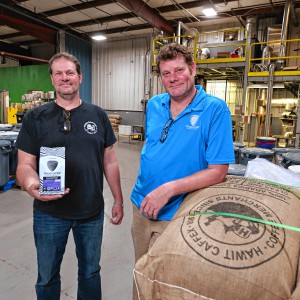As I See It: To ‘Be British,’ to ‘Be American’
| Published: 01-13-2023 2:57 PM |
In the news media coverage of the death of Queen Elizabeth of England, we learned something about being “British,” as certain behavior was called “very British” and certain others “not very British.” What’s being “British?”
The most historically famous reference to being “British” occurred on April 15, 1912 on the sinking Titanic in its maiden voyage from England to New York. The unsinkable was sinking and the unthinkable was happening. Edward John Smith, the revered captain of the chaotic ship gathered his crew and gave them one short order that was to be immortalized into history: He simply said, “Be British” (which is inscribed on his statue today). Instantly the crew understood the meaning of his instruction: Courage. Integrity. Gallantry. Stoicism. Do your duty and be dignified. Into those two words, Capt. Smith described the very history and character of Great Britain and he himself died with the ship.
As we observed the basic tradition of the British people during the queen’s death, we were impressed that not much had changed in England since the time of Capt. Smith. The queen herself might have said to her distraught family and nation: “Be British,” whose meaning would have been instantly clear. Such thinking opens up another question: What if someone said, “Be American,” in a comparable moment of crisis? What would we think of the meaning of the instruction, “Be American?”
Unlike the United Kingdom, the United States has gone through some major changes in its character formation. To simplify such changes, let’s divide American history into three century-blocs. In the first century of Frontier America, “Be American” could have meant living and thinking like David Crockett, a rugged frontiersman in a wide-open continent who believed in freedom and equality in the literal sense of the words. In the second century of industrial capitalism, being “American” might have been exemplified by characters like Horatio Alger, a fictional persona who lived the “American Dream” in hard work, shrewd calculus and its material rewards. Today, in the third century of America that has witnessed three generations of consumer society that began with the post-World War II era, being “American” is intimately tied to unabashed pursuits of individual pleasure, comfort and benefit. What does “Be American” mean in this age of me-generation and self-interest? Who would be an “American” today, as David Crockett and Horatio Alger were in their times and Capt. Smith and Queen Elizabeth were for England?
There is one persona whose fame matches Capt. Smith’s in the name of Pete Carroll, formerly the head football coach of the University of Southern California (USC) and presently the head football coach and vice president for the NFL’s Seattle Seahawks. As a quintessential “American,” here is his story to personify America’s third century and what is to “Be American” in our time.
Both Coach Carroll and his historical nemesis Capt. Smith have famous legacies, having to do with sinking ships, Smith literally with the Titanic and Carroll figuratively with USC. Smith stayed with the Titanic and died with it; Carroll abandoned the sinking ship that was USC, about to be investigated by the NCAA, with crippling penalties expected to follow. So, Carroll abandoned ship, raising a chorus of sports headlines on his trail: Typically, “Just Why Is Pete Carroll Leaving USC?”
Not unlike Capt. Smith’s aftermath (after all the unsinkable sank), controversy dogged Pete Carroll whom his detractors called “CheatyPetey.” Did he abandoned the sinking ship USC for money? Did he fear the coming NCAA sanctions? He said no. Regardless of his motive, he was at the center of controversy and many were unkind to him for his abandonment of USC. For Capt. Smith, nobody had come to his rescue. But Pete Carroll was rescued by the NFL Seahawks with an offer of $35 million (as opposed to $5 million at USC) and, feeling the hot pursuit of the NCAA investigators, he abandoned the sinking ship, “leaving questions behind at USC,” as a local paper said, and bolted for the Seahawks.
Amid the controversy over Carroll’s integrity and character, Bill Plaschke, a popular columnist at the Los Angeles Times, came to his rescue, defending Carroll as representative of “America.” “That’s not sleazy,” Plaschke wrote in his Jan. 9, 2010, column in Carroll’s defense. “That’s America.” So, according to Plaschke, sleazy was America and America was sleazy. Our great columnist declared in just a few words what it means to “Be American.” In essence Plaschke was saying, that yes, Pete Carroll is leaving a program at one of its lowest moments, but “that’s not sleazy. That’s America.” To contrast with being “British,” is there anyone in America who would disagree with Plaschke’s description of being “American?”
Article continues after...
Yesterday's Most Read Articles
 Fogbuster Coffee Works, formerly Pierce Brothers, celebrating 30 years in business
Fogbuster Coffee Works, formerly Pierce Brothers, celebrating 30 years in business
 Real Estate Transactions: May 3, 2024
Real Estate Transactions: May 3, 2024
 Greenfield homicide victim to be memorialized in Pittsfield
Greenfield homicide victim to be memorialized in Pittsfield
 Softball: Franklin Tech pulls away from Hopkins, 8-3 (PHOTOS)
Softball: Franklin Tech pulls away from Hopkins, 8-3 (PHOTOS)
 As I See It: Between Israel and Palestine: Which side should we be on, and why?
As I See It: Between Israel and Palestine: Which side should we be on, and why?
 Bridge of Flowers in Shelburne Falls to open on plant sale day, May 11
Bridge of Flowers in Shelburne Falls to open on plant sale day, May 11
No less authority than Barrack Obama, the U.S. president, confirmed the meaning of “America-American” when he praised Carroll at the White House (on winning the Super Bowl) for “doing things the right way.” Plaschke was right: Sleazy is America; and Obama was right: Sleazy is the “right way.” Not to be out done, USC, now forgiving of its former captain who deserted his sinking ship, conferred an honorary doctor of humanities on Pete Carroll at the next commencement. And USC was right: Sleazy deserved the doctor of humanities.
Sleazy, the right way, the doctor of humanities —all “American.” In case you wondered, we are now clear about what is meant to be “British” and what is meant to be “American.”
Jon Huer, columnist for the Recorder and professor emeritus, lives in Greenfield. He received his Ph.D. in sociology from UCLA.
]]>

 Guest columnist Gene Stamell: We know what we know
Guest columnist Gene Stamell: We know what we know Michelle Caruso: Questions candidate’s judgment after 1980s police training incident
Michelle Caruso: Questions candidate’s judgment after 1980s police training incident Kathy Sylvester: Vote for expertise on May 6
Kathy Sylvester: Vote for expertise on May 6 Shirley and Mike Majewski: Vote for Blake Gilmore
Shirley and Mike Majewski: Vote for Blake Gilmore
